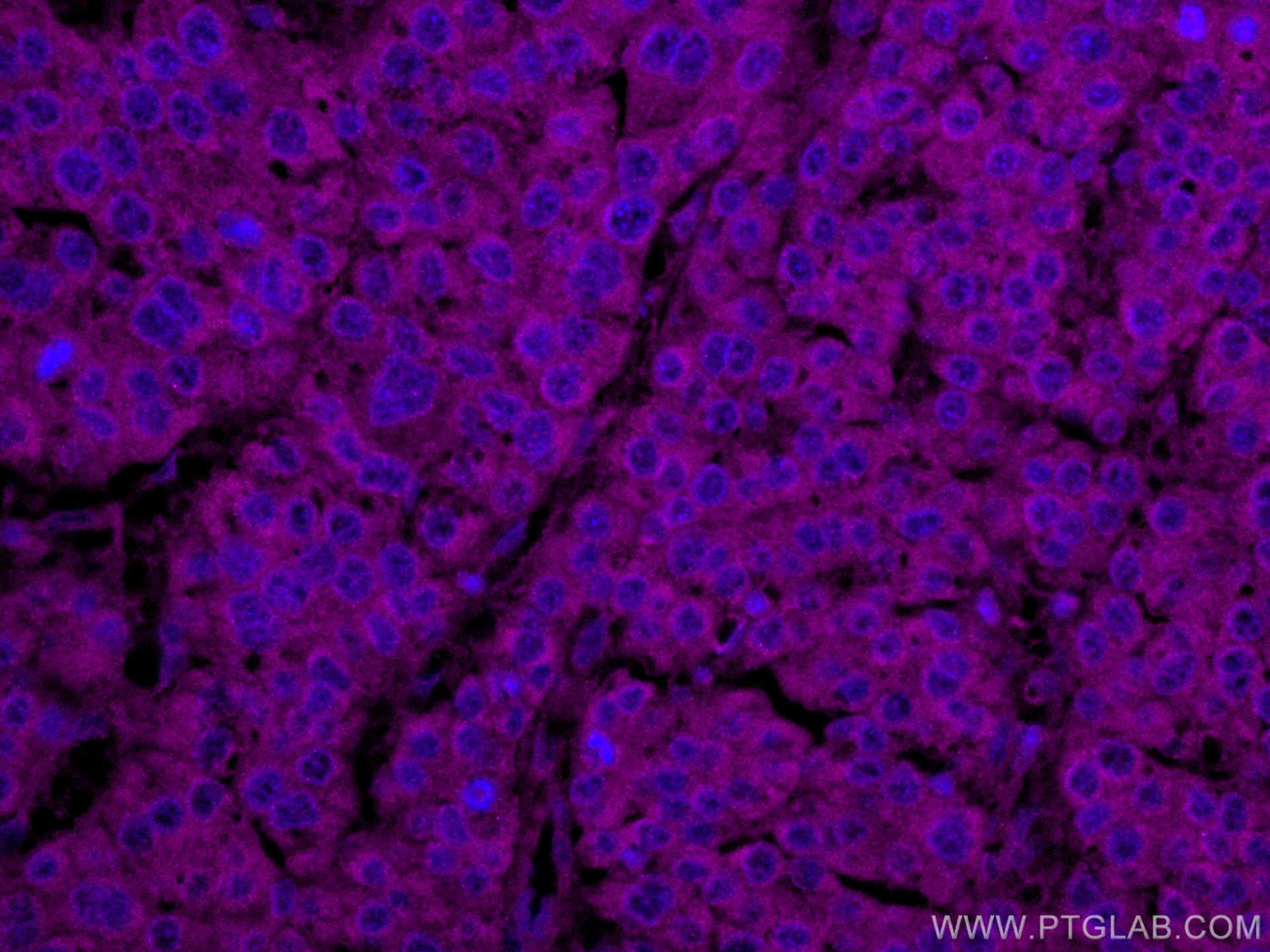Validation Data Gallery
Tested Applications
| Positive IF-P detected in | human liver cancer tissue |
Recommended dilution
| Application | Dilution |
|---|---|
| Immunofluorescence (IF)-P | IF-P : 1:50-1:500 |
| It is recommended that this reagent should be titrated in each testing system to obtain optimal results. | |
| Sample-dependent, Check data in validation data gallery. | |
Product Information
CL647-67655 targets NCAPH in IF-P applications and shows reactivity with Human samples.
| Tested Reactivity | Human |
| Host / Isotype | Mouse / IgG1 |
| Class | Monoclonal |
| Type | Antibody |
| Immunogen | NCAPH fusion protein Ag27748 相同性解析による交差性が予測される生物種 |
| Full Name | non-SMC condensin I complex, subunit H |
| Calculated molecular weight | 741 aa, 83 kDa |
| GenBank accession number | BC024211 |
| Gene Symbol | NCAPH |
| Gene ID (NCBI) | 23397 |
| RRID | AB_2920297 |
| Conjugate | CoraLite® Plus 647 Fluorescent Dye |
| Excitation/Emission maxima wavelengths | 654 nm / 674 nm |
| Form | Liquid |
| Purification Method | Protein G purification |
| UNIPROT ID | Q15003 |
| Storage Buffer | PBS with 50% Glycerol, 0.05% Proclin300, 0.5% BSA, pH 7.3. |
| Storage Conditions | Store at -20°C. Avoid exposure to light. Stable for one year after shipment. Aliquoting is unnecessary for -20oC storage. |
Background Information
Non-SMC condensin I complex subunit H (NCAPH) is one of the three non-SMC subunits in condensin I, which belongs to a recently defined superfamily of proteins termed kleisins. Another two non-SMC subunits, CAP-D2 and CAP-G, share a highly degenerate repeating motif known as HEAT repeat. Some studies show that each subunit is essential for viability and plays an important role in mitotic chromosome architecture and segregation. In recent years, researchers found that the high expression of NCAPH was associated with poor prognosis in patients with non-small cell lung cancer and prostate cancer. Downregulation of NCAPH inhibited the proliferation, migration, and invasion of several cancer cells significantly. Moreover, NCAPH was involved in the regulation of mature chromosome condensation and DNA damage. These data suggest that NCAPH may be a key carcinogen involved in the development and progression of human malignant tumors. ( PMID: 28300828, PMID: 33311486 )
Protocols
| Product Specific Protocols | |
|---|---|
| IF protocol for CL Plus 647 NCAPH antibody CL647-67655 | Download protocol |
| Standard Protocols | |
|---|---|
| Click here to view our Standard Protocols |
